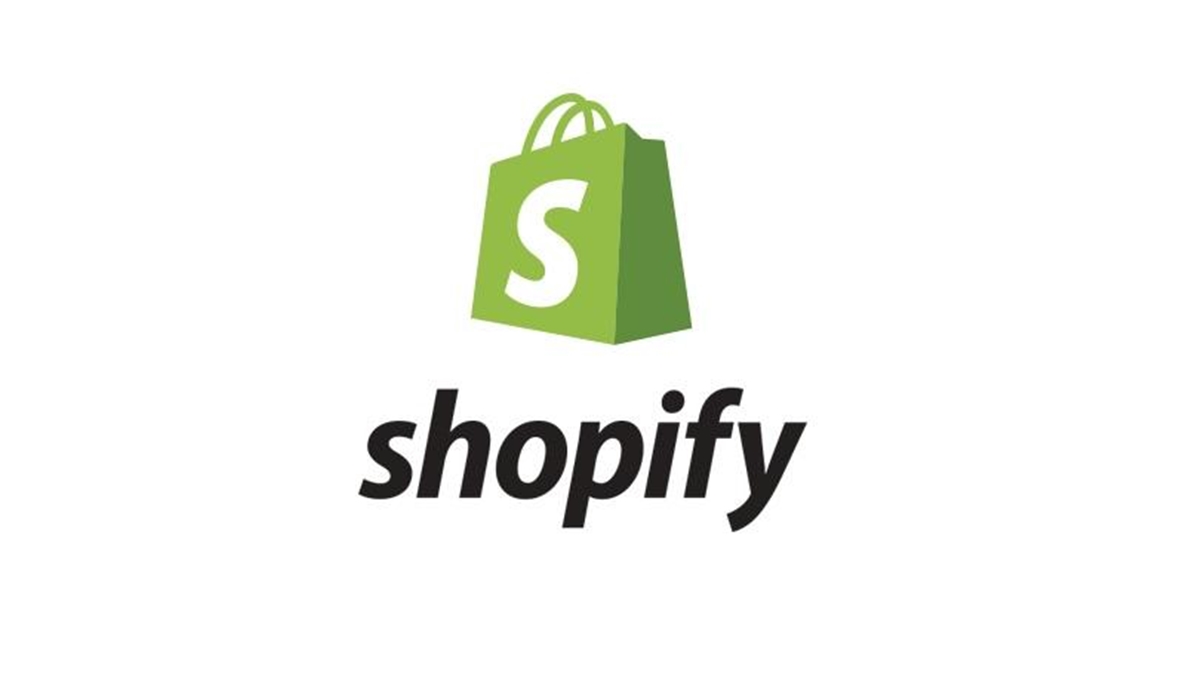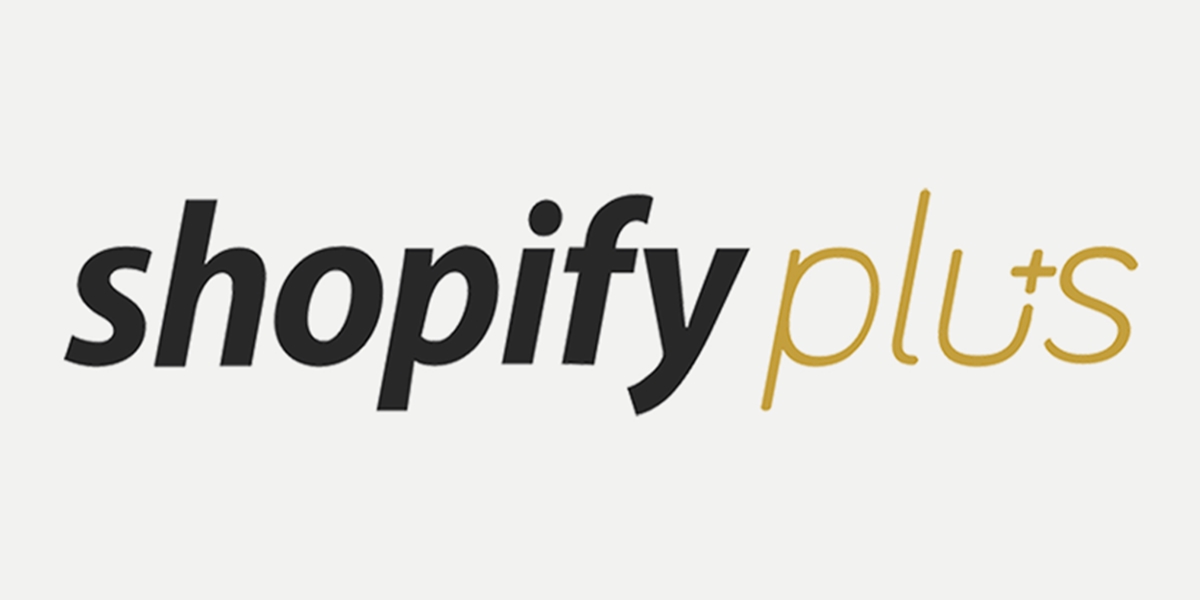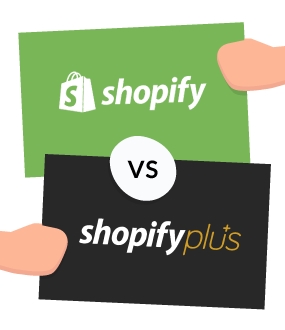Shopify vs Shopify Plus: What is the key difference
When you embark on the online business, you may be very familiar with the Shopify and Shopify Plus platform. But you may not know exactly What the difference is between Shopify and Shopify Plus.
With our article, you will find a simple answer. We will go through the overview of Shopify and Shopify Plus, the difference between them, and who Should Use Shopify vs. Shopify Plus. Please don’t go anywhere because we will go straight into the details right now. Let’s get started.
Related posts:
- What Is Shopify? How Does Shopify Work Exactly?
- Shopify Plus Reviews: Cost, Features, Pros & Cons
- Setting Up a Shopify Store with 11 General Settings Checklist
Shopify overview

Description
Shopify is a complete eCommerce platform that enables you you commence, develop, and operate a business. Completely cloud-based and hosted, it eases the requirement to manage your web servers.
Features

- Shopify equips you with various tools to help kickstart and oversee your enterprise. Depending on your chosen pricing plan, you’ll have everything you need to display your products online, handle payments, and operate efficiently. Shopify offers:
- Both free and premium themes from the Shopify Theme Store enhance your store’s look.
- A range of free and paid apps from the Shopify App Store to optimize your online store’s performance.
- Shopify’s integrated payment system to facilitate credit card transactions.
- Sales channels and an enterprise plan tailored for high-volume sellers and those aiming to minimize transaction costs.
- A dedicated Shopify blog with guides and articles to aid in managing your online store and engaging with your clientele.
- Global experts ready to assist with launching, designing, and promoting your brand.
- A 24/7 support team is available to address your queries, irrespective of your Shopify subscription.
Pricing & Transaction Fee
Pricing

As per the latest statistics updated, Shopify is providing three primary pricing plans:
- Basic plan: $39 per month
- Shopify plan: $105 per month
- Advanced plan: $399 per month
Significantly, users can save up to 25% for each plan if they pay yearly for the bill.
Additionally, Shopify users can make use of other alternative plans for their businesses like:
- Shopify Starter: $5 per month - Sell products at events and through social media and messaging apps
- Shopify Retail: $89 per month - Sell in-store with advanced staff, inventory, and loyalty features
- Shopify offers you a 3-day free trial, followed by 3 months of Shopify for just $1 per month.
Transaction fee
With Shopify Payments, their credit card rates/payment processing rates for online transactions are as follows:
- Basic Shopify Plan – 2.9% + 30 cents per transaction
- Shopify Plan – 2.6% + 30 cents per transaction
- Advanced Shopify Plan – 2.4% + 30 cents per transaction
Shopify Plus overview

Shopify Plus Description
Shopify Plus is one of the upgraded versions of Shopify. Though they have a very similar interface, Shopify Plus features are more robust and it has a different pricing system.
Shopify Plus Features

Shopify Plus is an enterprise-level solution focused on business expansion for businesses dealing in high volumes. The noteworthy features of Shopify Plus include:
- Advanced apps tailored for retailers aiming for significant growth.
- A fully customizable checkout, offering greater branding control.
- Enhanced API calls for integration with bespoke apps.
- The Merchant Success Program ensures you leverage the full potential of Shopify Plus.
- Dedicated Launch Engineers to expedite your business setup, facilitate third-party integrations, and source partners for design and development needs.
- Unlimited staff accounts, letting you grow your team without extra costs.
- Nine additional stores for diversifying into international markets, different physical locales, and more.
- Exclusive access to beta programs to influence future product developments.
- Connection to many technology, agency, and solution partners via the Shopify Plus Partner Program.
- Entry to the Shopify Plus Academy, offering self-paced training on crucial business expansion topics.
- Membership to the Shopify Plus Community on Facebook, fostering strategy and experience sharing with other large-scale merchants.
- Capability to maintain up to 100 themes, aiding in theme trials, preserving seasonal theme versions, or testing theme variations.
- Advanced permission settings, providing heightened control over staff activities in your Shopify admin, including specific app permissions and distinct report export rights.
- A unique wholesale channel, allowing the creation of a separate, password-secured wholesale store.
Pricing & Transaction Fee
Shopify Plus’s pricing is tailored to individual needs and provided upon request. For a detailed price breakdown suited to your business’s specific requirements, contacting Shopify Plus directly is best. The pricing is influenced by your sales volume and distinct needs, encompassing growth, technology, design, and support. Quotes can be easily requested.
Pricing
Shopify Plus has no fixed cost; you can register the plan starting at $2000/ month. For instance, Say your monthly sales range from $0 to $800,000, Shopify Plus plans may be approximately $2,000 monthly. Shopify Plus’s pricing can vary and even go up to $40,000, which is the Shopify Plus’ ceiling price. You may need to contact Shopify Plus directly for detailed negotiation on the pricing plan… From here, you can explain your business model, monthly turnover, and marketing requirements to agree on a proper price.
Transaction fee
- If you use only Shopify Payments to process your payments, You pay Shopify all online and in-person credit card fees, with the lowest rates of any plan. Credit card rates* vary per country.
- If you use both Shopify Payments and a third-party processor, you might pay a minimal rate for third-party transactions based on your location.
- If you only use a third-party processor, You pay your processor fees, plus 0.15–0.30% per transaction, to Shopify for security and compliance costs.
Shopify vs Shopify Plus: What are the similarities & differences?

Design Flexibility
Similarities
Shopify and Shopify Plus offer over 60 themes to set up your online store. You can get 10 of these for free; the rest cost between $140 and $180. These themes come in English, Spanish, French, and more. So, starting a store focused on customers from a specific country is easy.
Here are the brief similarities between Shopify and Shopify Plus:
- Themes: Shopify vs Shopify Plus places more than 100 professionally designed, customizable themes at your fingertips. Whether free or premium, these themes are crafted by experts prioritizing the customer experience, ensuring that your store looks great and resonates with your brand identity.
- Templates: In addition to the ten complimentary templates, the others are available for purchase, typically priced between $140 and $180. While this might seem steep to some, viewing it as a one-time investment in your brand’s image makes it a worthwhile expenditure.
- Language Support: Language can significantly affect how a customer shops. That’s why Shopify lets you talk to customers worldwide in their own language. With Shopify, you can show your store in five different languages, reaching more people across the globe. For an even better experience, try the Translation app from Shopify’s App Store. It spots where a customer is from and shows your store in that language.
Differences
- Shopify’s theme store also provides a user-friendly interface to browse, preview, and categorize themes.
- Using Shopify’s editor, you can easily make basic customizations. Once you’ve added your items, you can decide their placement and categorize them on different pages.
- For those seeking deeper customization, a foundational understanding of coding is beneficial. Specifically, you should familiarize yourself with Shopify’s theme language, Liquid. You can tweak your theme’s look with specific code lines through Liquid. However, if coding isn’t your strength, don’t be alarmed; numerous guides are available.
- Shopify Plus is tailored for enterprise-level operations. If you’re utilizing Shopify Plus, you already possess a website.
- To ease the transition, Shopify Plus offers a dedicated launch manager. Their primary role is to ensure seamless integration of your website into Shopify. They’ll handle coding, facilitating a smooth transition to a customized Shopify theme.
- One notable distinction between Shopify vs Shopify Plus is the capability to customize the checkout page. While this feature is absent in the standard Shopify, Shopify Plus empowers you with this ability.
- In terms of design flexibility, Shopify Plus undoubtedly holds an edge. Both platforms present over 60 themes, but Shopify Plus offers additional advantages, such as a dedicated launch manager and the freedom to modify your checkout page.
- Enhanced Customization: Shopify Plus presents an expanded suite of customization options for your store. For instance, with Shopify Plus, you gain access to the script editor, allowing you to personalize your cart and checkout—a feature not available in basic Shopify plans. Moreover, the Launch Manager ensures your existing website integrates smoothly with Shopify.
- Extensive Language Support: Shopify Plus excels in template language options. While standard Shopify supports translations in 5 languages, Shopify Plus extends this to 20, enabling a more personalized shopping experience and heightened customer engagement.
Which platform is better here?

The content suggests that Shopify Plus offers more advanced features, especially in customization and language support, than the standard Shopify. So, in terms of advanced functionalities and flexibility, Shopify Plus is portrayed as the superior option.
Who is for whom?
- Shopify: Suitable for a wide range of merchants, from local stores to multinational enterprises, looking for a platform with stunning storefronts and essential features. This includes those who want customizable themes, the ability to use templates, and language support for up to 5 languages.
- Shopify Plus: Targeted towards merchants or enterprise-level businesses that need more robust customization capacities and expanded language support (up to 20 languages). It’s also ideal for those with an existing website who need seamless integration into Shopify, as they can take advantage of the Launch Manager.
eCommerce features

Similarities
Multi-currency
Both Shopify vs Shopify Plus allow merchants to sell in multiple currencies using Shopify Payment, enhancing the potential for international business expansion. The system dynamically adjusts product prices based on a customer’s location. More than 130 currencies are supported and automatically converted based on the prevailing exchange rate. To streamline this feature, a currency selector is provided for customers in the theme store, and merchants can use the Geolocation App to notify customers about currency switching.
Product and Store options
Both Shopify vs Shopify Plus offer foundational store management tools. These include:
- Customer Management
- Order Management
- Multiple Shipping
- Fulfillment Centers and Refunds
The platforms offer features such as video and 3D support, inventory management, multiple images and variations, and SEO support to enhance the product pages further. Also, social media integration, gift cards, discounts, Google Ads credit, and tools for reviews and social proof are available for marketing purposes on both platforms.
Analytics
Shopify vs Shopify Plus comes equipped with an analytics dashboard, offering real-time insights into sales and customer data. This is crucial for understanding the current business landscape and strategizing marketing campaigns. Both platforms provide detailed reports, but the depth and range vary depending on the subscription plan chosen.
Differences
Multi-currency
Shopify Plus stands out with its feature that automatically chooses the most suitable currency for customers based on their IP address, removing the need for manual selection. Additionally, Shopify Plus lets merchants customize currency rounding rules, enhancing the buyer experience.
Store and Product Features
Exclusive to Shopify Plus:
- Shopify Flow: Automates various ecommerce operations by setting up workflows and making tasks like sending ‘Thank You’ emails to high-volume purchasers automated.
- Script Editor: Provides a unique ability to customize the shopping cart and checkout pages, restricted to only Shopify Plus users. It allows for discounts based on cart properties and tailoring of shipping and payment methods.
- Bulk Account Inviter: An efficient tool for inviting a bulk of pre-existing customers to activate accounts, beneficial for merchants migrating from another platform. Furthermore, Shopify Plus guarantees that automatic notification emails sent to customers won’t be flagged as spam, thanks to using the Sender Policy Framework to authenticate email addresses.
Analytics
While at first glance, Advanced Shopify vs Shopify Plus might seem similar in the breadth of their analytics, Shopify Plus elevates the depth of its reports. It’s not just about quantity but the enriched quality of insights Shopify Plus provides.
Which platform is better here?
Based on the depth and range of features provided, especially in customization and advanced automation, Shopify Plus seems to hold a superior edge, particularly for businesses looking for enhanced capabilities and deeper insights.
Who is for whom?
- Shopify: Best suited for startups to mid-sized businesses that need a solid foundation with powerful features to run an online store efficiently.
- Shopify Plus: Tailored for enterprise-level businesses requiring advanced customization, automation, and detailed analytical insights to scale their operations.
Help & Support

A robust support system can distinguish success and frustration when building an online business. Both Shopify vs Shopify Plus pride themselves on providing top-notch assistance to their merchants. However, there are vital distinctions to be noted.
Similarities
- Diverse Support Channels: Both platforms ensure that merchants have many resources. From tips and tutorials available at the Help Center and YouTube Channel to a vast and active Shopify Community, the ecosystem thrives on mutual assistance.
- 24/7 Availability: Recognizing that online businesses can face challenges at any hour, Shopify and Shopify Plus offer 24/7 customer support. This includes phone, email, and live chat support, ensuring help is always available.
- Self-help: For merchants keen on self-education, both platforms provide ample resources. The Help Center is the go-to hub for immediate challenges or knowledge enhancement.
Differences
- Priority Assistance: While both platforms provide 24/7 support, Shopify Plus merchants are placed on a priority list. This means faster response times and quicker issue resolution.
- Dedicated Support: Shopify Plus offers specialized, dedicated support personnel. This includes a Launch Manager, who aids in the initial setup and onboarding, and a Merchant Success Manager (MSM), who offers continuous guidance, updates on industry trends, and strategic coaching.
Which platform is better here?
In terms of sheer volume and diversity of support, both platforms excel. However, Shopify Plus edges out owing to its priority assistance and dedicated personal support. These additional layers of service, designed specifically for the platform’s users, enhance the overall merchant experience, making Shopify Plus the superior choice in the help and support category.
Who is for whom?
- Shopify: Crafted for those just starting, small to mid-sized businesses, or those who need a reliable platform with a robust support system. Shopify covers you if you want a platform with all essential support tools.
- Shopify Plus: Designed with large enterprises in mind or businesses on the trajectory of rapid expansion. Shopify Plus is your go-to platform if you seek personalized, priority assistance and have complex integration needs.
Who Should Use Shopify vs Shopify Plus

The major kinds of businesses that ought to use Shopify Plus are large ventures, wholesalers, and enterprise-level eCommerce shops. Shopify is for small and mid-level businesses.
The Shopify Plus software’s power and reliability make it practical for businesses who would otherwise need to employ technical personnel.
In some noteworthy cases, using Shopify Plus is a clear advantage. For instance, a spike in sales in the holidays may lead to a crash to your online store or system if you are not well- prepared. It can help you a great deal by manipulating the incidents like this, so you do not have to worry.
Final Thoughts

In conclusion, eCommerce can be a challenging field to control, but hopefully, now you have a better knowledge of the differences between Shopify vs. Shopify Plus. Bear in mind that when you select your Shopify plans, they will not include any domains, apps, or themes.
Should you have any questions, comments, or concerns, feel free to contact us and we will help you out. Good luck with your eCommerce business!
FAQs:

Shopify boasts a remarkable 99.99% uptime, slightly edging out Shopify Plus, which stands at 99.98%. Although this might make Shopify Plus appear marginally slower, it's noteworthy to mention that Shopify Plus storefronts load approximately 2.97 times faster than other SaaS platforms. Consequently, both platforms effectively reduce bounce rates, potentially preventing a dip in your business's conversion rate.
Your decision largely hinges on Shopify's offerings and your specific requirements. Shopify is undeniably a commendable choice for novices aiming to venture online, especially for the first time. Its appeal lies in its ease of use — even if you're a novice with no development background, Shopify offers a suite of professionally crafted storefront themes and robust payment security.
Yet, if your enterprise heavily leans towards content marketing, other platforms like WordPress or Medium might better cater to your needs, given that Shopify's blogging capabilities are somewhat restricted.
New Posts

How To Set Up Google Analytics 4 For Your BigCommerce Store






